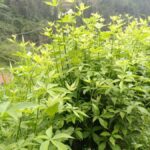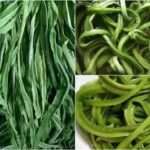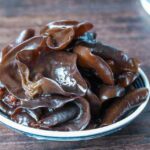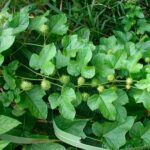Vietnamese people are no strangers to Polyscias fruticosa, a familiar plant often gracing home gardens as an ornamental tree. Its leaves are edible and can be consumed directly, cooked into soups, or brewed into a daily Polyscias fruticosa herbal tea. The great physician Hai Thuong Lan Ong likened Polyscias fruticosa to the poor man’s ginseng due to its nutritional content being almost comparable to that of ginseng.
Health Benefits of Polyscias fruticosa
In Traditional Oriental Medicine, Polyscias fruticosa is used to aid in treating insomnia, fever, and pain. It is also believed to boost energy and strengthen the body.
Modern scientific research reveals that Polyscias fruticosa contains vitamin B complex, notably vitamin B1, which is beneficial for vision, the nervous system, and cardiovascular health. Additionally, glucosides present in this plant enhance cardiac contractility, aid in reducing excess sodium, and alkaloids provide effective analgesic and anesthetic effects. Polyscias fruticosa also contains flavonoids that inhibit the growth of pathogenic bacteria.
Consuming Polyscias fruticosa (both its leaves and roots) is believed to enhance physical strength, reduce stress, combat fatigue, alleviate anxiety, stimulate brain activity, and boost the immune system.
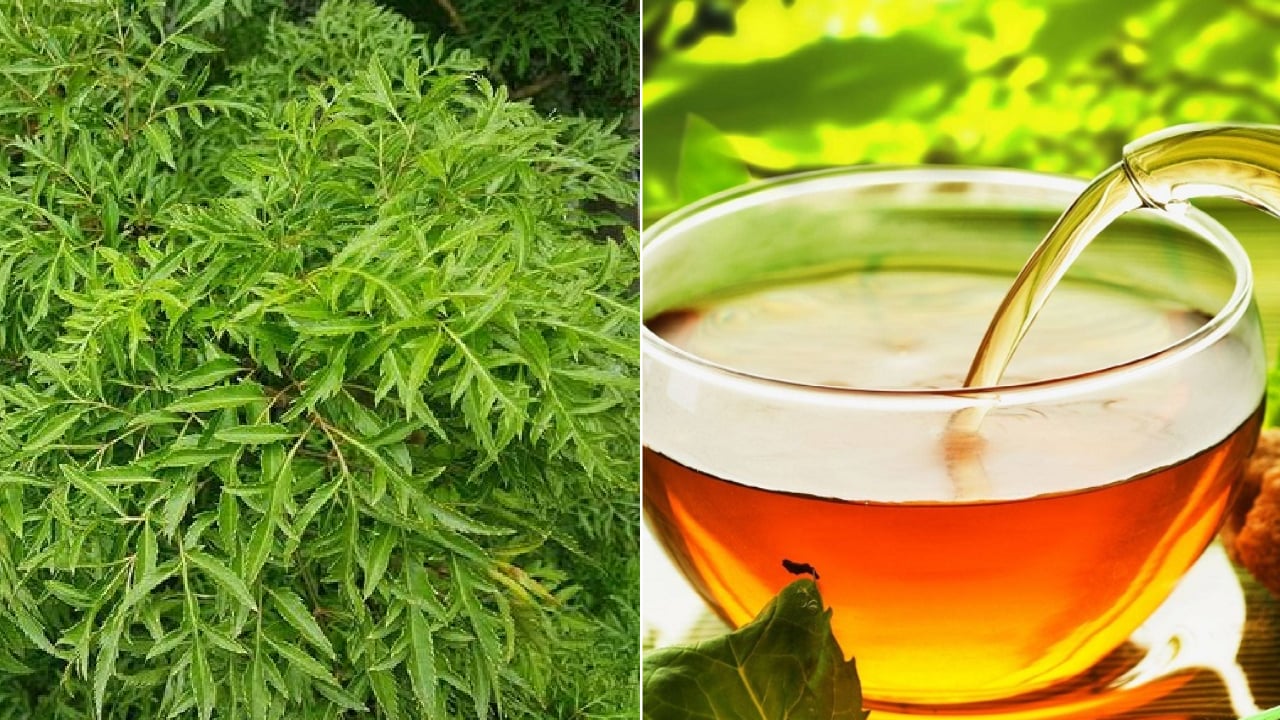
Benefits of Drinking Polyscias fruticosa Herbal Tea
For ages, people have been brewing Polyscias fruticosa leaves into a refreshing herbal tea. According to medical experts, this tea provides essential nutrients such as vitamins B1, B2, B6, and C, along with glucosides, lysine, and methionine. Polyscias fruticosa herbal tea aids in treating chronic coughs caused by weather changes, improving sleep quality for those with insomnia or difficulty sleeping, reducing symptoms of hand and foot numbness, and alleviating back pain. It also helps detoxify the body, promotes diuresis, mitigates weather-related allergies and skin issues like acne, eczema, and hives, and enhances skin complexion. For women, this herbal tea is believed to be beneficial during pre- and post-natal care, enhancing lactation and preventing blocked milk ducts.
Precautions When Drinking Polyscias fruticosa Herbal Tea
While Polyscias fruticosa herbal tea offers health benefits, excessive consumption should be avoided due to its high saponin content. Ingesting large amounts of saponins can lead to discomfort, fatigue, dizziness, and other adverse effects. It is important to adjust the dosage according to individual needs and refrain from long-term excessive intake.
This herbal tea is not recommended for children as their immature bodies may experience negative reactions, impacting their health. Polyscias fruticosa tea is best used topically for skin cleansing and treating itching.
Although Polyscias fruticosa is considered a mildly toxic herb, excessive consumption can potentially affect the cardiovascular system, stomach, and liver.
Pregnant women, especially during the first trimester, should refrain from drinking Polyscias fruticosa herbal tea to avoid any potential impact on the fetus.
When taking medication for a health condition, it is advisable to consult a physician before consuming Polyscias fruticosa herbal tea, as it may interact with certain drugs, reducing their effectiveness or enhancing side effects.
“Wild Weed, Once a Humble Fence, Now a City Favorite: A Tasty and Healthy Treat.”
Introducing a plant with a unique flavor profile and an impressive array of health benefits. This humble herb boasts a calming effect on the mind and body, offering natural relief from stress and anxiety. Its cooling properties provide a refreshing escape from the heat, while its sleep-supportive qualities ensure a restful night’s slumber. With its multitude of advantages, this plant is a true superstar in the world of wellness.
























